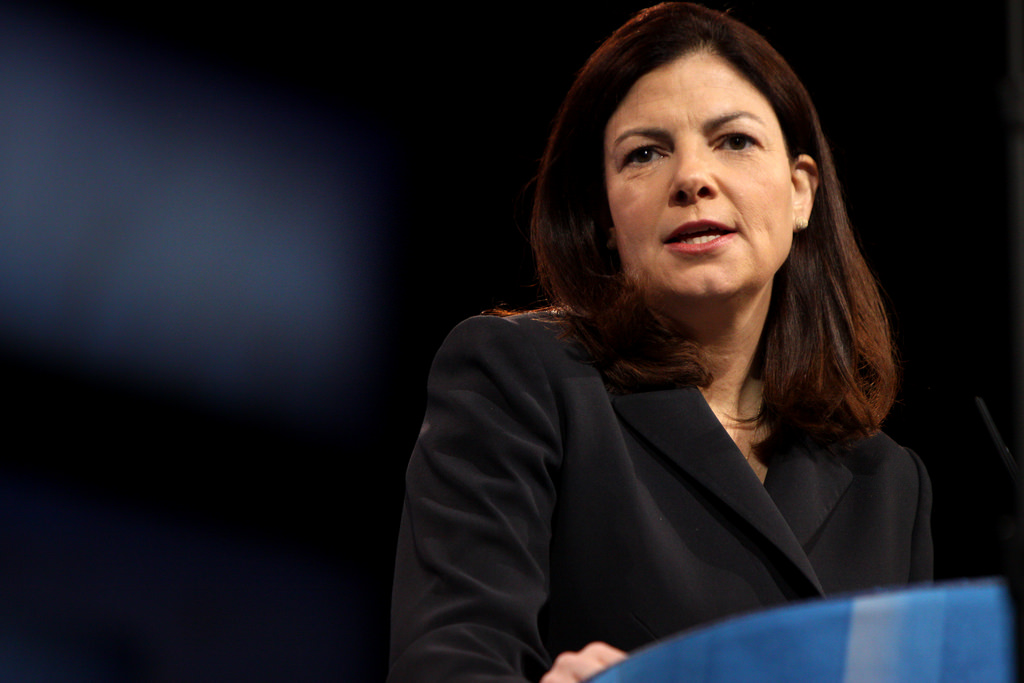
Advertisement
(NationalSecurity.news) A just-released Pentagon report on recent terrorist detainees at the Guantanamo Bay detention facility was made public last week by a lawmaker who opposes White House efforts to shutter the military-run prison over concerns that some inmates will return to the battlefields of Afghanistan and the Middle East, AMI Newswire reported.
The report, which summarizes the activities of 107 prisoners suspected of links to terrorism, was delivered by the Defense Department to Sen. Kelly Ayotte. The New Hampshire Republican had been seeking the information since last year, when she asked the Pentagon to compile particulars on the prisoners into a single unclassified document. Ayotte posted the log Wednesday on her Senate website.
The report consists of thumbnail sketches of prisoners held at the U.S. Navy’s base on Guantanamo, Cuba, as of Nov. 25, 2015. A number of the prisoners have since been transferred out of the facility known as GTMO.
Some of the prisoners are characterized in the document as having been inconsequential enemies. Among them is Abdul Rahman Ahmed, about whom the report states: “He probably exaggerated his involvement in and knowledge of terrorist activities and likely did not play a senior role in terrorist activities.”
Other detainees, however, are depicted as prime actors. They include Abd al-Rahim al-Nashiri, identified as the “mastermind and local manager” of the bombing of the USS Cole; and five men facing charges related to the 9/11 attacks.
The most prominent of these is Khalid Shaykh Muhammad, described as “the driving force behind the 9/11 terrorist attacks as well as several subsequent plots against U.S. and Western targets worldwide.”

Muhammad is charged with murder, terrorism, hijacking and other offenses.
Information on the prisoners is key, Ayotte said, in light of the administration’s ongoing plans to release them to third-country caretakers.
“The Obama administration promised transparency, but this new report shows why they’ve been so reluctant to uphold that promise when it comes to the detainees at Guantanamo Bay,” Ayotte said in an emailed statement. “The more Americans understand about the terrorist activities and affiliations of these detainees, the more they will oppose the administration’s terribly misguided plans to release them.”
The primary concern is recidivism, the senator said.
“Most of the detainees who remain at Guantanamo are the worst of the worst, as demonstrated by the fact that 93 percent of the detainees who remained there as of late last year had been assessed as a high risk for a return to terrorism.”
Those concerns were echoed this year in a finding from the director of National Intelligence.
“Based on trends identified during the past 11 years, we assess that some detainees currently at GTMO will seek to re-engage in terrorist or insurgent activities after they are transferred,” reads a March 2016 report from the department led by James Clapper. “Transfers to countries with ongoing conflicts and internal instability, as well as recruitment by insurgent and terrorist organizations, could pose problems.”
Speculation on future behavior is not enough to justify continued detention, though, one expert said.
“The idea of preventive detention, in GTMO or anywhere else, is abhorrent,” said David Remes, a human rights lawyer who has represented over two dozen detainees and currently represents nine detainees. “No one should be held based on a prediction of how the person will act if released. We certainly shouldn’t be holding someone simply because we believe that the person may be a threat to someone else.”
One ex-detainee, Jihad Ahmed Mustafa Diyab, was the subject of international fears that he would harm others, after he vanished for more than a month this summer in South America. As reported by AMI Newswire, Diyab, a Syrian national, disappeared in June from Uruguay, where he was released to in 2014. Diyab resurfaced July 26 in Venezuela.
Rather than wage jihad, though, the former prisoner was arrested and once again is incarcerated. He is being held in Venezuela.
In a statement this week to AMI Newswire, Diyab’s former lawyer expressed concern that the former hunger striker had once again stopped eating.
“I find it tragically ironic that, because of an apparent quest to be reunited with his family, he now finds himself once again being detained without charge or trial and beyond reach of the rule of law,” Jon Eisenberg wrote in an emailed statement. “And I am concerned about the conditions of his current confinement and whether he might have resumed hunger-striking in protest.”
The question, meanwhile, persists on what to do with the 76 prisoners at GTMO.
Ayotte wants what she called a “common sense law of war detention policy – focused on the security of Americans and nothing else – that keeps terrorists off the battlefield and gathers the intelligence necessary to prevent future attacks.”
The lawyers advocate for the types of procedures that are used in American civilian courts.
“Those being held without charge should be released,” Remes said. “Those who are charged should be prosecuted fairly.”
The prisoners’ cases will be decided by the Pentagon’s ongoing Periodic Review Board, which reviews each case every three years. At least five cases are scheduled to be reviewed through September.
Reporting by Susan Katz Keating, AMI Newswire.
More:
- U.S. Sending B-1B Bombers To Guam As Part Of Overall Asian Buildup And Signal To China, North Korea
- Milestone: ISIS Struggling To Find New Recruits In The Heart Of Its ‘Caliphate’
- After Losing Ground In Syria And Iraq, CIA Chief Says ISIS Planning More Guerrilla Attacks In West
NationalSecurity.news is part of USA Features Media.
Submit a correction >>
This article may contain statements that reflect the opinion of the author
Advertisement
Advertisements
















